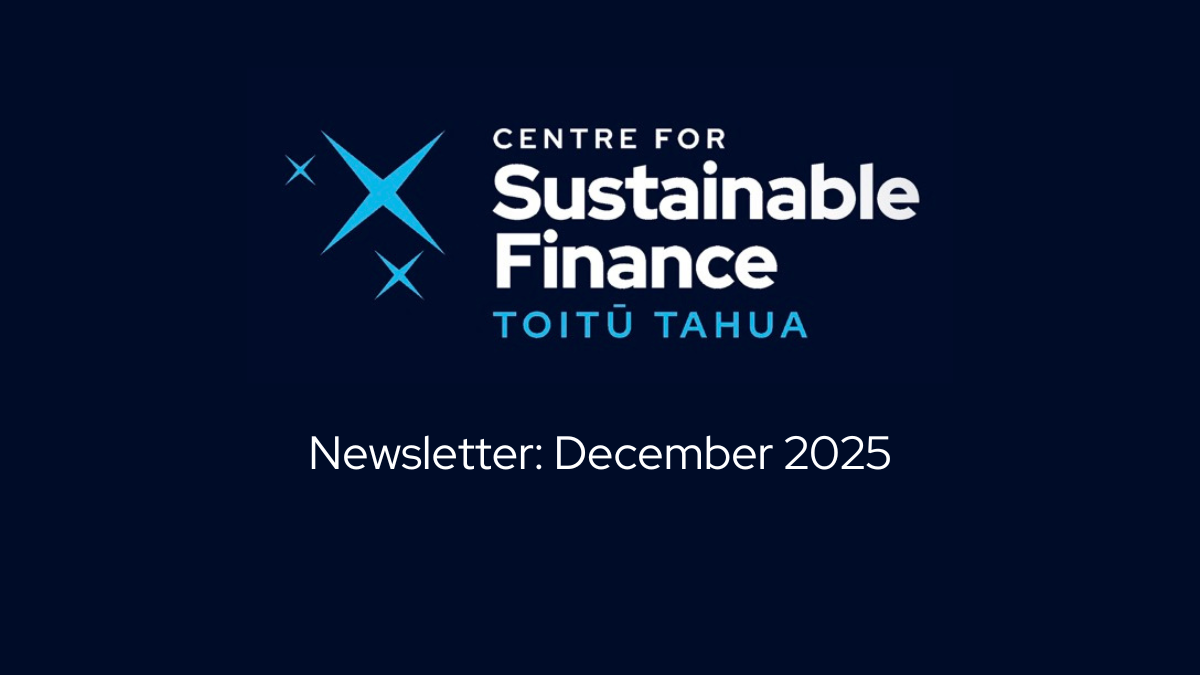There is evolving international discourse around the intersection of climate-related risk and financial system stability. The Reserve Bank of New Zealand – Te Pūtea Matua (RBNZ) is is uniquely positioned to enable alignment of the Aotearoa New Zealand economy with a low emissions future. The Centre for Sustainable Finance: Toitū Tahua (CSF) therefore made submission on the Risk Weights Omnibus Consultation Paper to call for RBNZ to demonstrate leadership and provide further clarity on the influence of climate and sustainability factors on the risk profile of lending made by banks to support Aotearoa New Zealand’s transition to a low emissions economy.
Capital requirements are regulatory standards for banks that determine how much liquid capital (easily sold assets) RBNZ requires them to keep on hand, as a proportion of their overall holdings. Risk weights adjust capital requirements according to the riskiness of lending or investment: the riskier the credit, the higher the capital required to be kept in reserve by the bank to guard against insolvency. Capital requirements and risk weights should reflect climate-related risks.
Key points of the submission:
- The role of the Reserve Bank is to act as kaitiaki of the financial system, guarding the prudential soundness of New Zealand’s entities and the system as a whole. RBNZ is uniquely positioned to lead and enable an orderly transition to a low emissions economy.
- The required steep emission cuts and adaptive responses will take unprecedented, genuine collaboration between central and local governments, the private sector, indigenous peoples, and all communities.
- Banks and insurers have a role to play in managing and mitigating climate-related financial risks, as does prudential regulation, however there are many challenges in assessing climate and sustainability risks.
- Capital requirements and risk weights should reflect climate-related risks. This will require new ways of thinking but is of the utmost importance.
- Further dialogue and consultation is needed to understand, appreciate and address the practical barriers currently preventing the adjustment of internal risk models.
- Climate-related financial risks are a priority, with broader sustainable development considerations such as iwi & Māori access to capital, nature, and biodiversity being core considerations for further consultation.
- New Zealand is in a strong position to innovate and lead on prudential regulation that responds to the unprecedented challenge of funding and financing the transition to net zero by 2050.



